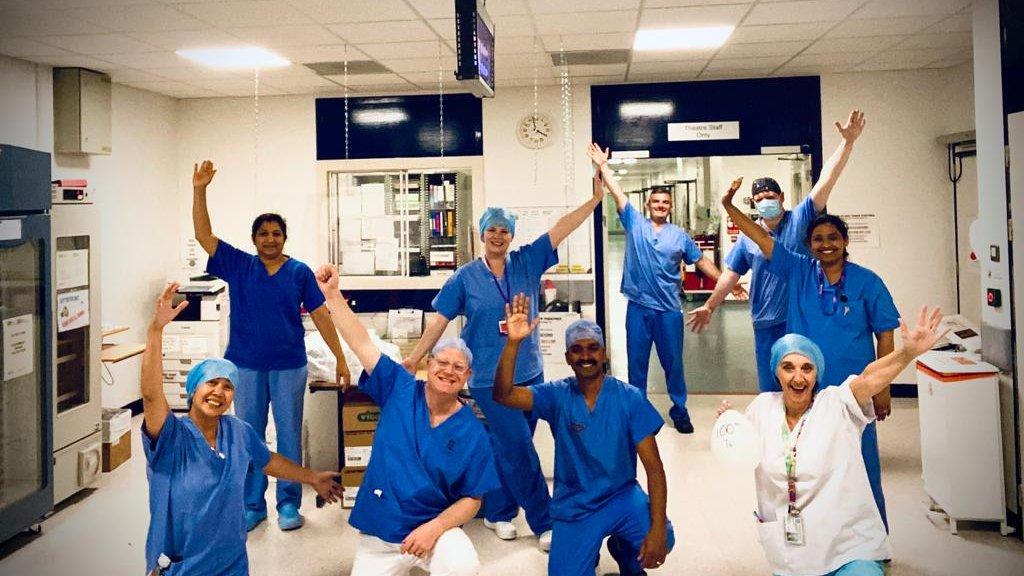Facebook: Woman's social media search for kidney donor amid pandemic
- Published
Diana Isajeva has taken social media in her search to find a live kidney donor
"I am faced with the reality that my heart may stop and I might not wake up tomorrow."
Diana Isajeva has taken to Facebook and social networking app Nextdoor in her search to find a live kidney donor.
The 27-year-old, from Leckwith, Cardiff, had complete kidney failure during the coronavirus lockdown.
The Welsh Government said doctors had to balance the need for a transplant with the "challenges of widespread community transmission of Covid".
Originally from Lithuania, Diana has lived in Cardiff since she was 15.
She was in her first year studying law when she woke up one morning with neck pain: "I just thought I had slept funny, but then my joints started to swell and I couldn't eat or sleep or walk, and was in complete agony."
After several tests and a biopsy, she was diagnosed with an extremely aggressive form of lupus, external, which turned out to be life-threatening, and her organs started to fail.
"At 19 years old, the doctors saved my life, and I had to have chemotherapy in order to continue to live, this is what has affected my kidneys," she said.
"Eight years of chemotherapy takes its toll on the body and unfortunately my kidneys couldn't be saved."
Her usual monthly blood tests were postponed for four months due to the pandemic and she said her chemotherapy was delayed for 10 weeks.
"I understand why the ward was turned into a Covid ward and the kidney doctors had to work to help those who had Covid, but the pandemic made it that my condition deteriorated a lot quicker."
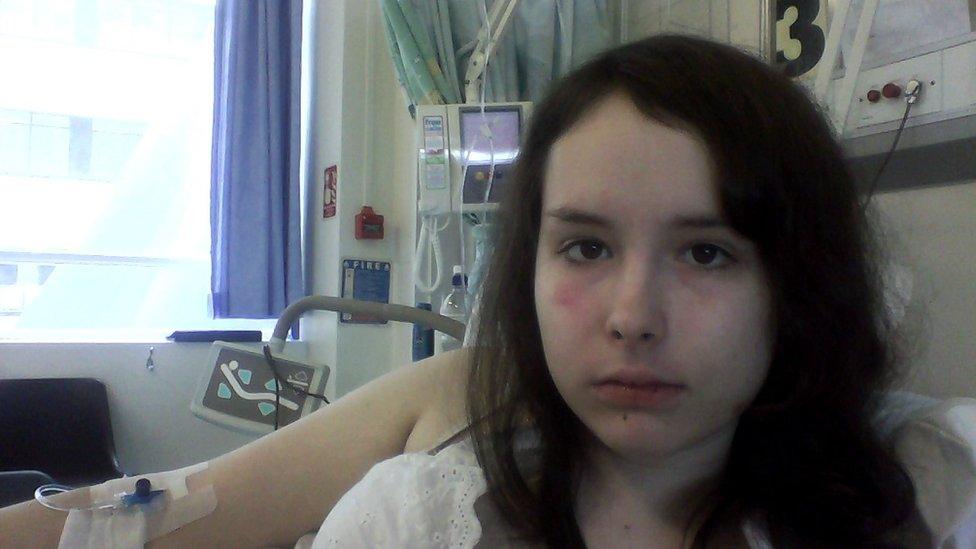
Diana Isajeva said it would be "an absolute miracle," to find a kidney donor for Christmas
With the considerable decline in her kidney function, doctors said her best bet to live a healthy life was a transplant.
"Getting that news was awful, basically being told you are dying and then not being able to hug anyone or see anyone who could support was so, so hard," she said
Diana's family all live abroad so cannot donate and her fiancé, Sandeep Singh Randhawa, is not a match, so she has decided to turn to the public.
Her blood type - O - is universal, meaning donors can give to people with blood types A, B and AB, external, but can only have a transplant from someone who is type O.
"I read an article where a stranger donated a kidney and it inspired me, so I asked my doctor if I could run a campaign and she said she would support me, so I posted on Facebook and it is slowly picking up," she said.
"I have had responses from all over the world, it's been mixed but mostly positive. Some people have been sceptical and I have had a few offers from people offering to sell me a kidney but its mainly been messages of kindness and support.
"It would change my life, it would be the biggest gift that I could receive and would be like having a second birthday. I would be able to get married and pursue my career."
Diana said, without a live donor, she would need dialysis, which would shorten her life expectancy: "Dialysis wears out your heart, and cadaver transplants are full of toxins which make it harder to recover.
"With a live donor, the kidney can last a lifetime as it works much better and for a longer time, it would give me the opportunity to live a happy and healthy life."
Because of the backlog of people waiting for surgeries of kidney transplants after the pandemic, Diana said she was not able to be put back on the waiting list.
Wales' only transplant centre was temporarily closed during the UK-wide lockdown earlier this year.
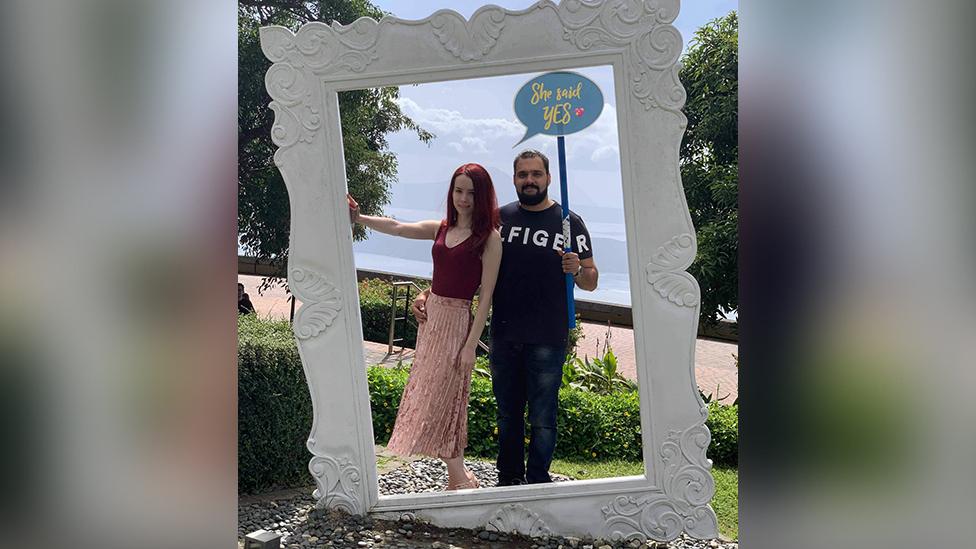
Diana said her ordeal "made me realise how important life is and to cherish those closest around you"
Fiona Loud, policy director of Kidney Care UK, said transplants were "down by 800 year-on-year, and the overall drop in transplants was 73%".
Diana is having more chemotherapy in January, but said it was "only to prolong my life until I get a transplant".
She added: "I'm just trying to live my life as long as I can, hoping that I can hold on and a match is found, I am so afraid with the realisation that my heart may stop and I may not wake up tomorrow."
Ms Loud said: "A kidney transplant is the gold-star treatment for kidney failure yet there are always more people waiting for a transplant than there are donor organs available.
"Hospitals need to prioritise kidney surgery and ensure they are doing everything they can to support people whose kidneys have failed."
The Welsh Government said: "We are unable to comment on people's individual circumstances but we are sorry to hear about this woman's situation and we wish the best for her ongoing treatment and care.
"Kidney transplants were suspended at the start of the pandemic but have been resumed over the summer. Renal services staff have also worked hard to ensure the active monitoring of people under their care has been maintained throughout the pandemic.
"However, transplant teams need to balance the patient's need for transplant against the additional challenges of wide spread community transmission of Covid and being immuno-suppressed at this time."
- Published19 August 2020
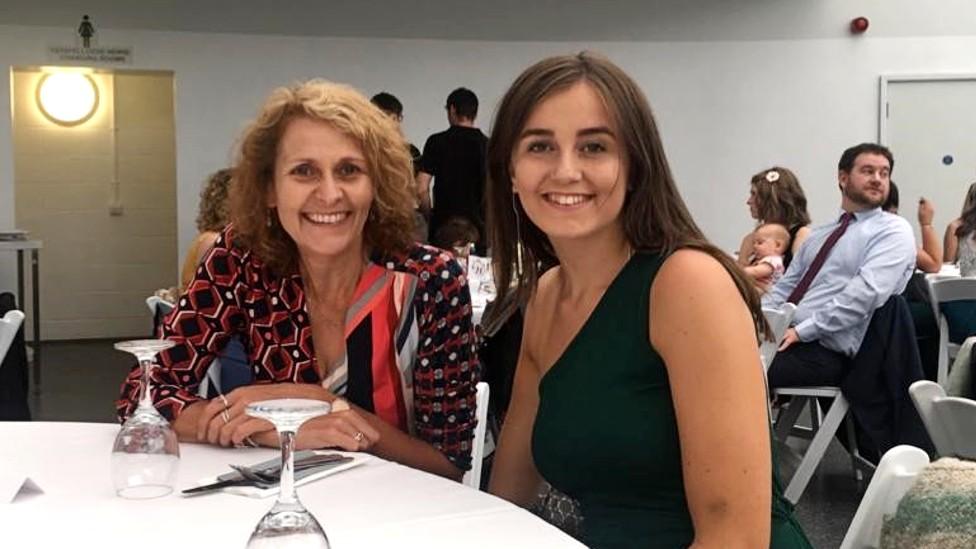
- Published1 December 2020
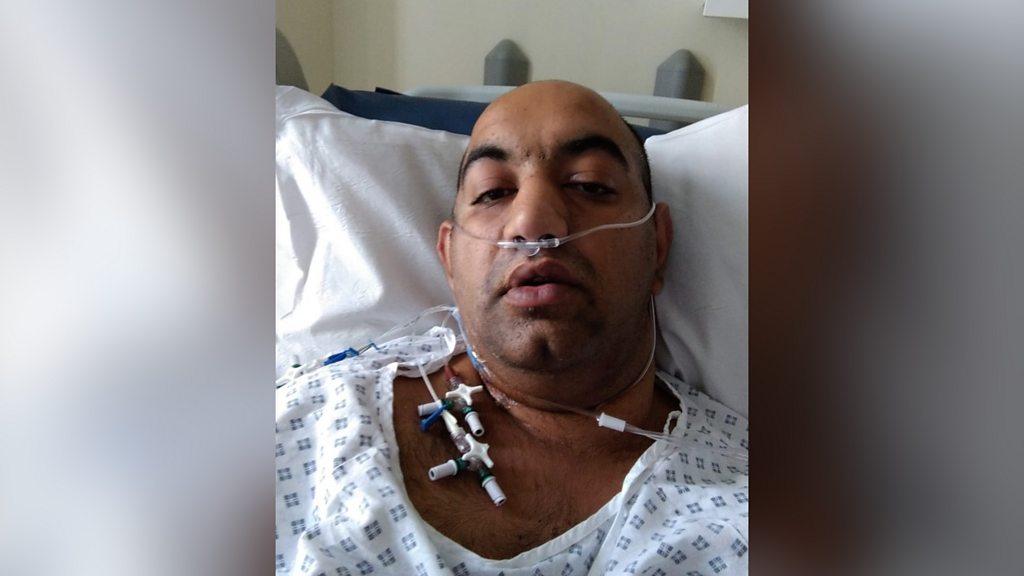
- Published9 September 2020
